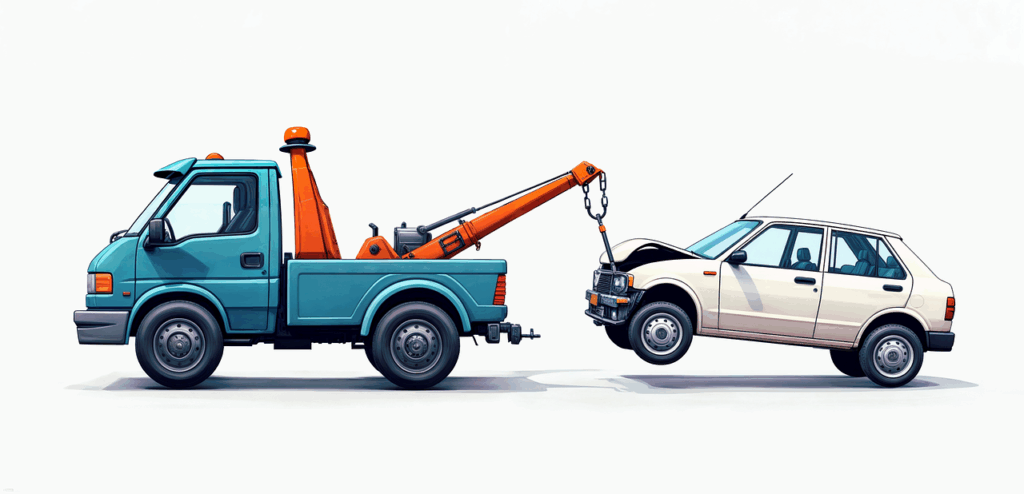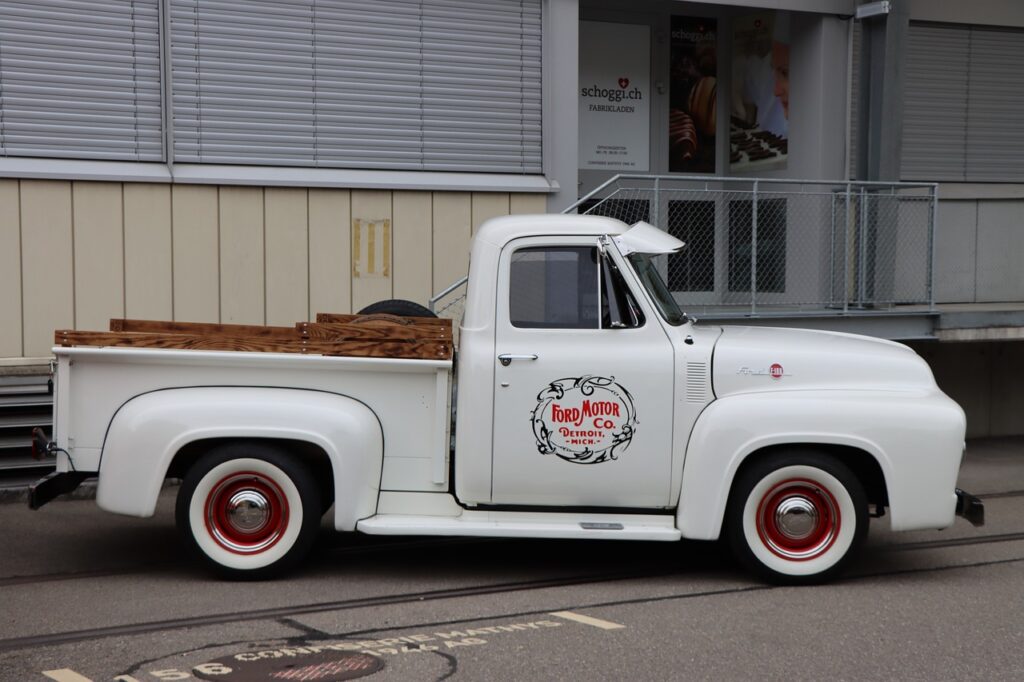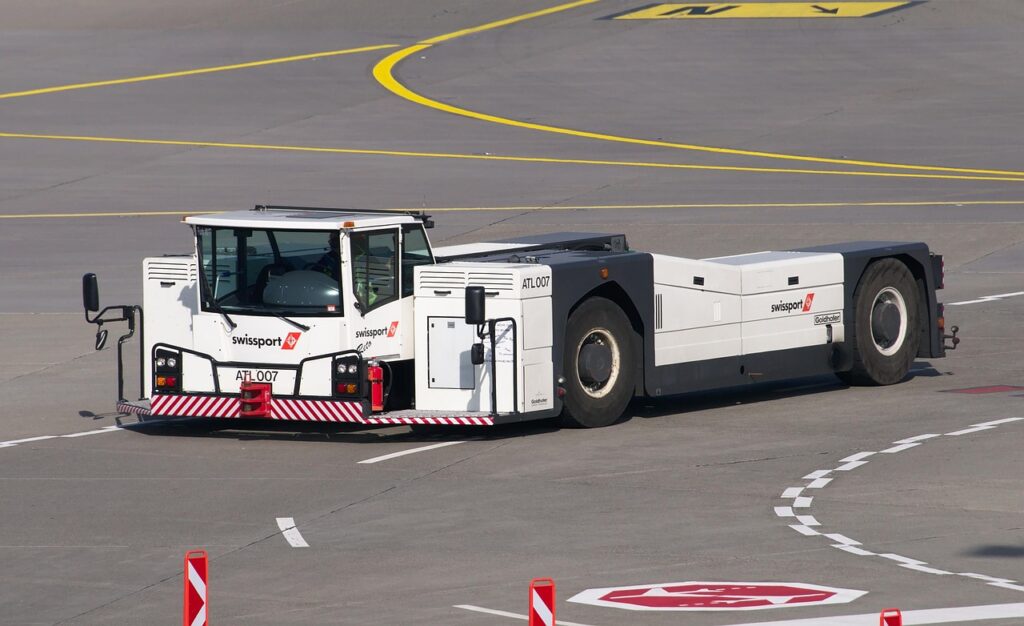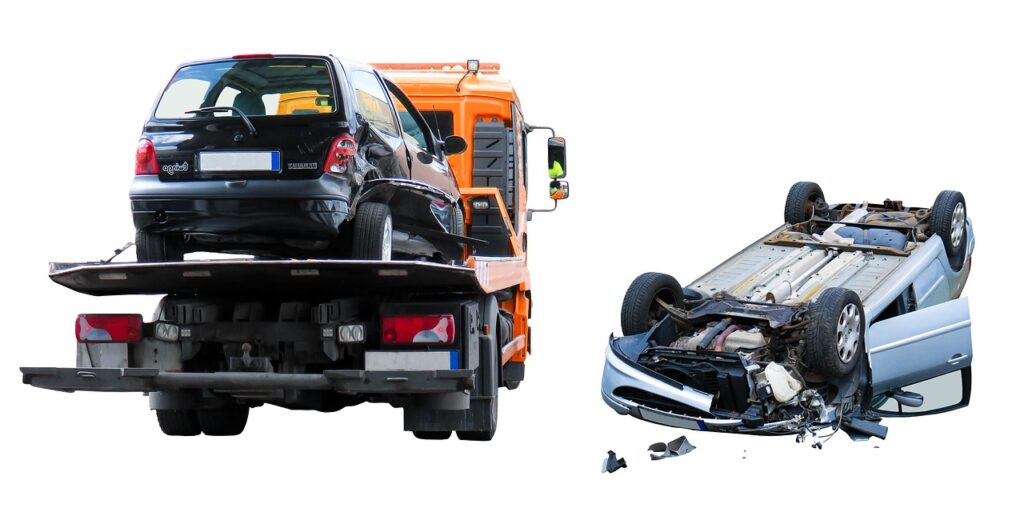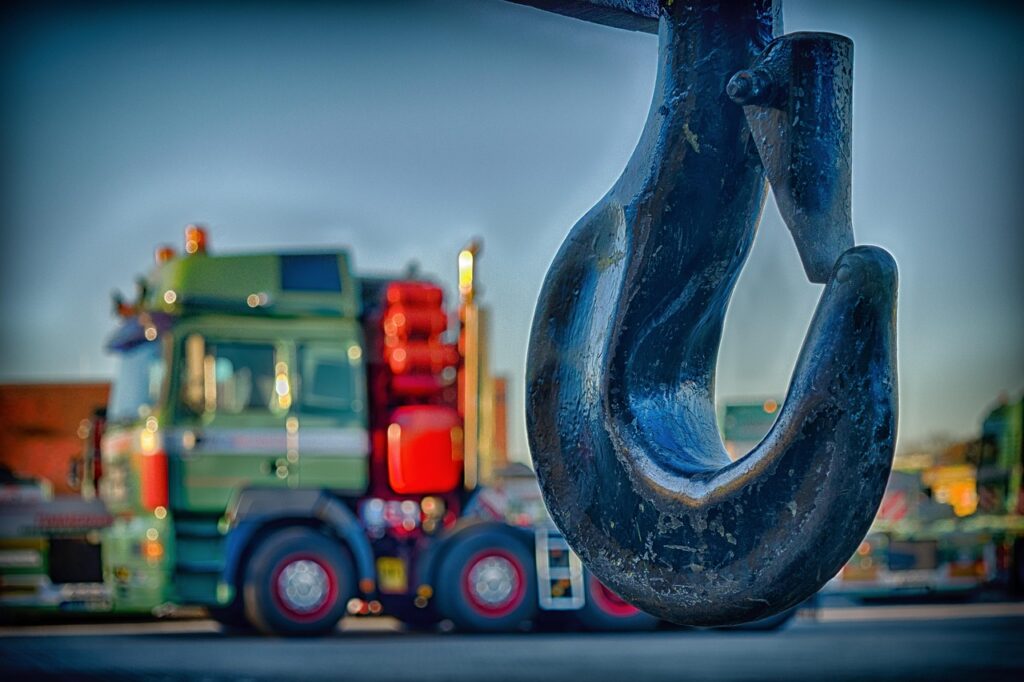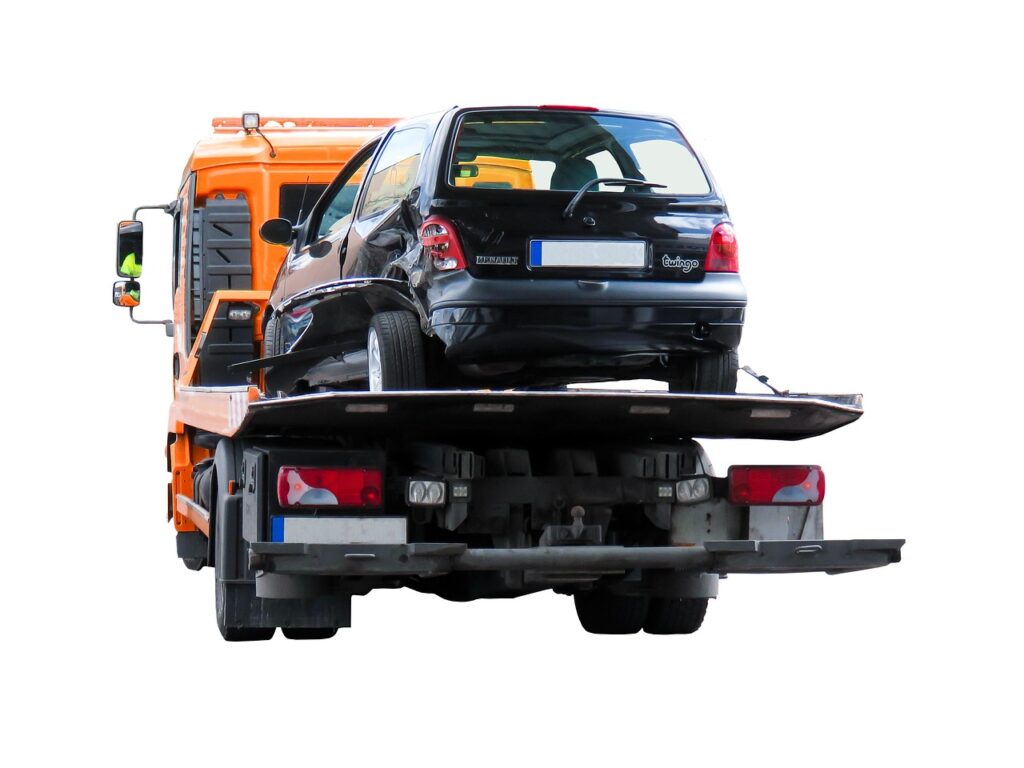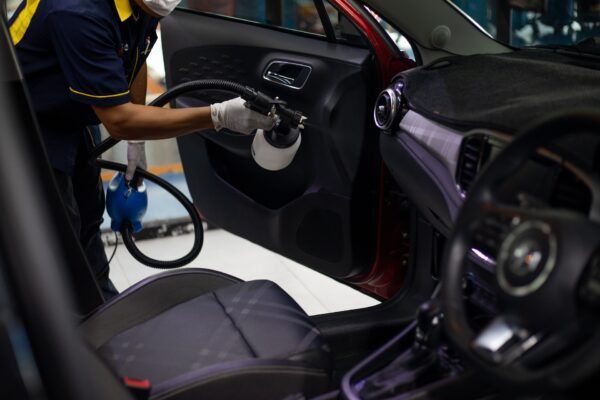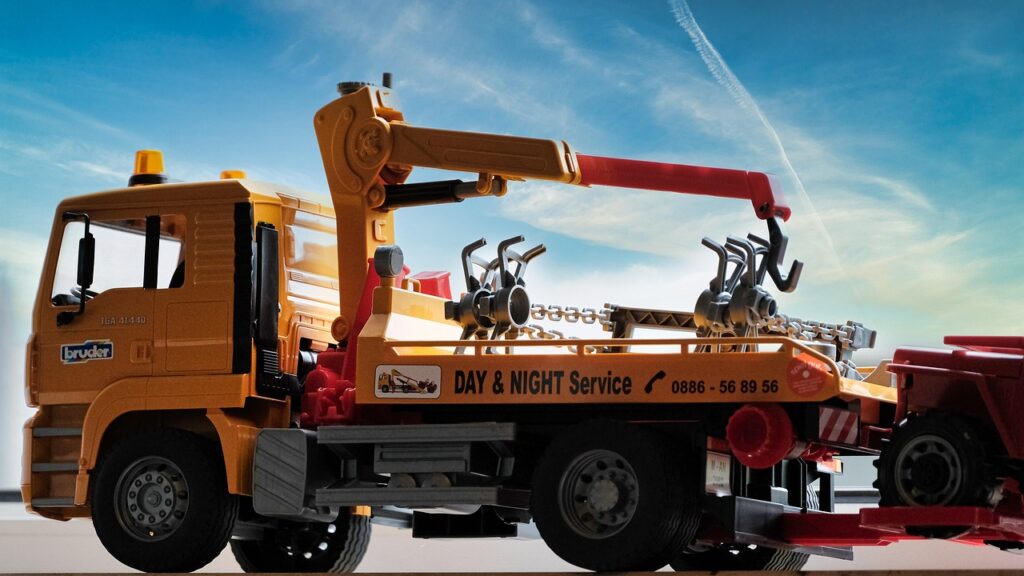
Alright, let’s talk about those moments we all dread: when your trusty vehicle decides it’s had enough and leaves you stranded on the side of the road. Whether it’s a sputtering engine, a surprise flat tire, or a battery that’s officially given up the ghost, calling for a tow is often the inevitable next step. It’s a stressful situation for you, the driver, no doubt about it, but have you ever stopped to think about what it’s like for the unsung heroes who come to your rescue?
These are the tow truck drivers, navigating unpredictable roads, often in challenging weather or late at night, all to get you and your car to safety. They see it all, and trust us, they have a mental list of things they wish every driver knew – or, more accurately, things they really wish you’d stop doing. Their job isn’t just about hauling vehicles; it’s about ensuring safety for everyone, including themselves, amidst hazardous conditions.
So, buckle up, because we’re diving deep into the 11 things tow truck drivers really, truly wish you’d cut out. Get ready to level up your roadside rescue game and make everyone’s lives a little bit easier and a whole lot safer. By understanding their perspective and making a few simple adjustments, you can transform a stressful breakdown into a smooth, efficient operation.
1. **Thinking “Close Enough” Is Fine for Your Location**You’re stranded, maybe a little panicked, and the first thing you want to do is call for help. When that dispatcher asks for your location, the urge to just blurt out the nearest street name is strong, but hold on a second. Tow truck drivers aren’t mind readers, and a vague location can turn a quick rescue into a frustrating scavenger hunt, adding precious minutes to your wait time.
What they really need is precision. Think beyond just the street you’re on. Are there nearby cross streets? Any notable landmarks like a big gas station, a unique building, or even a giant billboard? If you’re on a highway, the stakes are even higher. Note the mile marker, your direction of travel (north, south, east, west), and which side of the road you’re pulled over on.
Here’s a pro tip for the modern age: whip out your smartphone. Your GPS can often pinpoint your exact coordinates, or at the very least, give you a precise address. If your phone battery is playing hard to get, or you’re in an area with spotty reception, don’t hesitate to ask someone nearby for help. Precise information truly helps tow truck drivers find you faster, which in turn reduces your stress and gets you back on track more efficiently.
Remember, every detail you provide helps the tow truck operator navigate directly to you, avoiding unnecessary detours. Northeast Ohio towing services, for example, recommend having your specific area details ready to expedite emergency assistance. The goal is to get help to you as quickly as possible, and that starts with your precise location.
Read more about: Power Up Your Ride: A DIY Guide to Installing a Level 2 EV Charger at Home
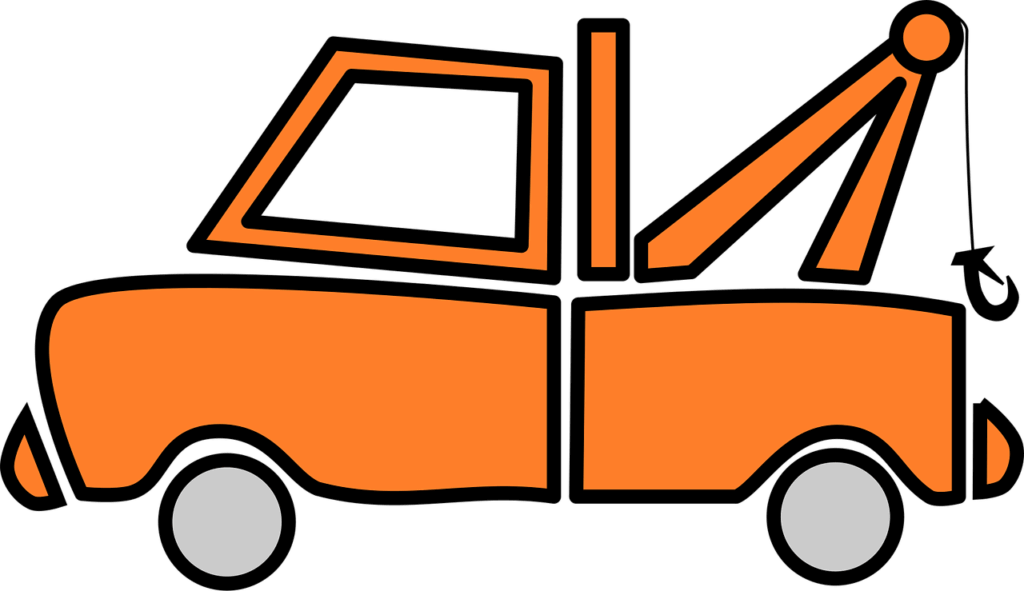
2. **Panicking and Forgetting Your Car’s Vital Stats**Okay, so you’ve nailed the location details – go you! But the conversation isn’t over yet. The next crucial piece of the puzzle is your vehicle’s identity. In the heat of the moment, with adrenaline pumping, it’s easy to draw a blank, but those essential vehicle details are not just bureaucratic hurdles; they’re vital for a smooth recovery.
Before you even make the call, take a deep breath and quickly gather your vehicle’s make, model, year, color, and license plate number. This might sound like a lot to remember, but a quick glance at your registration or even just walking around your car can refresh your memory. Having these specifics at your fingertips saves a lot of back-and-forth on the phone.
Why does all this matter? Well, different vehicles require different towing equipment. A tow truck equipped for a compact sedan might not be suitable for a large RV or a heavy-duty pickup. By knowing your car’s vital stats, the tow service can dispatch the correct type of truck with the appropriate gear, ensuring your vehicle is handled safely and effectively. It’s all about matching the right tool to the job.
Beyond the basic identification, be prepared to briefly describe the problem you’re facing. Is it a flat tire? A dead battery? Engine trouble? A quick, clear summary of the mechanical issue helps the operator anticipate what kind of assistance you’ll need. This preparation minimizes delays and allows the tow company to respond quickly and accurately, ultimately getting you back on the road sooner.
3. **Skipping the Price Talk and Getting Hit with Sticker Shock**Nobody likes surprises, especially when they involve your wallet during an already stressful situation. One common frustration for tow truck drivers (and for you!) is when customers are unaware of the costs involved until the bill arrives. This often leads to awkward conversations, delays, and unnecessary tension on both sides.
Most towing companies operate with a clear pricing structure, but it’s up to you to understand it. They typically charge a base fee for the hookup, which covers the initial service. On top of that, you’ll usually find additional rates for mileage, the time of day (after-hours calls often cost more), and the specific type of vehicle being towed. Larger vehicles or those requiring specialized equipment might incur higher fees.
Before you commit to a service, make it a point to ask about these charges upfront. Inquire about hookup fees, the per-mile rate, and, importantly, potential storage costs if your vehicle needs to be held for a period. A reputable towing service will be transparent about their pricing. Getting a clear estimate beforehand can save you a lot of frustration and prevent any arguments later on.
Understanding these towing service rates and policies can help you avoid unexpected costs and frustrations, fostering a much smoother interaction. It sets clear expectations for everyone involved and ensures that when the job is done, you’re not left with an unpleasant financial surprise. Remember, a little clarity goes a long way in preventing any awkwardness on the side of the road.
Read more about: The 15 Most Common Lies Car Salespeople Tell to Rush Your Purchase: A Consumer’s Guide
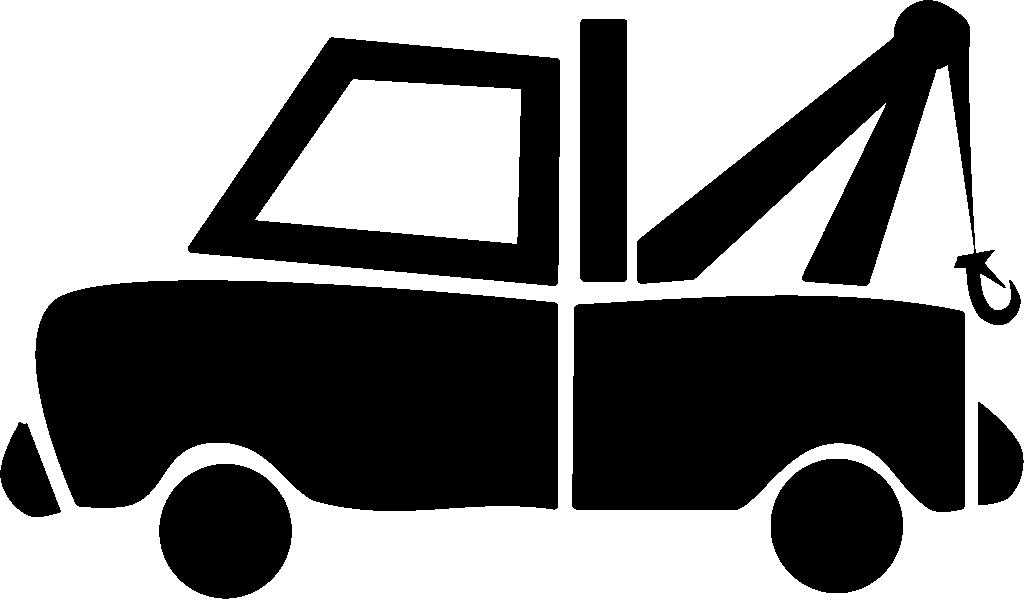
4. **Leaving Your Life’s Treasures (and Hidden Damage) Inside**When your vehicle is about to be towed, it essentially becomes a temporary cargo for the tow truck. This isn’t just a simple ride across town; it’s a professional operation that involves securing your vehicle and transporting it safely. One thing tow truck drivers really wish you’d stop doing is leaving personal items scattered throughout your car or failing to acknowledge any pre-existing damage.
Think of it this way: your car is about to go on a short, unexpected journey. Any personal items—wallets, phones, important documents, or even just your favorite sunglasses—should be removed and kept with you. This isn’t just about protecting your valuables from potential loss; it’s also about preventing unnecessary liability issues for the tow company. Plus, knowing your sentimental items are safe with you provides peace of mind.
Equally important, and often overlooked, is documenting any existing damage to your vehicle *before* it’s hooked up. Take a few quick photos or a video walkthrough of your car’s exterior. This is not about mistrust; it’s about clear communication and protection for both you and the tow truck operator. In the rare event that new damage occurs during towing, you have clear evidence of your vehicle’s condition beforehand.
Preparing your vehicle by removing personal items and documenting existing damage is a small step that makes a huge difference. It helps ensure the tow truck driver can focus on their job without worrying about your belongings and prevents any disputes about vehicle condition. A little bit of prep work on your part can lead to a much smoother and less stressful experience for everyone involved.
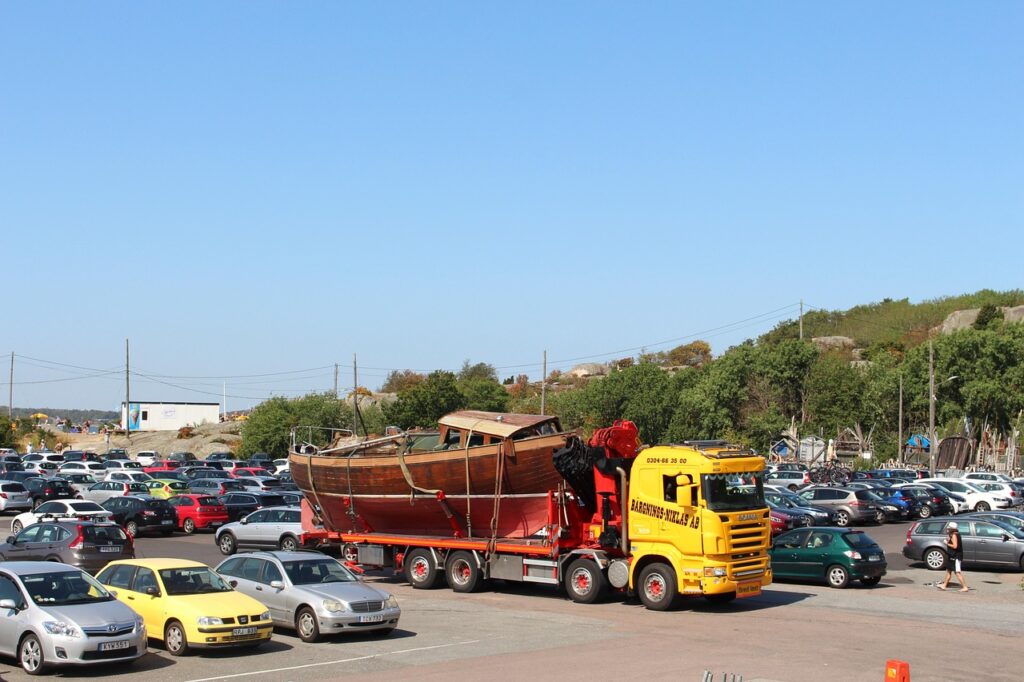
5. **Calling in a Flustered, Vague Frenzy**Breakdowns are inherently stressful. Your car just quit on you, you might be running late, and the last thing you want is a lengthy conversation. However, tow truck drivers unanimously wish you’d dial down the panic just a notch and communicate clearly, calmly, and thoroughly. A flustered, vague description of your situation can create confusion and delay the arrival of the right kind of help.
When you’re on the phone with dispatch or the driver, take a moment to collect your thoughts. Describe your situation calmly and thoroughly. Instead of saying, “My car’s broken,” try to articulate what’s actually happening. Is it making a weird noise? Is smoke coming from under the hood? Did a warning light come on? The more details you can provide, even if you’re not a mechanic, the better.
This clear communication isn’t just for your benefit; it significantly helps the tow truck driver. Understanding the nature of the problem allows them to anticipate what tools or specific recovery techniques might be needed. It also helps them plan their approach to your vehicle, especially if it’s in an awkward or dangerous spot. Knowing what to expect means they arrive better prepared to assist you.
Ultimately, clear communication fosters a more efficient and safer working relationship between you and the tow truck operator. It eliminates guesswork, minimizes delays, and allows them to perform their job effectively. So, next time you call, remember to breathe, articulate your situation as best you can, and trust that your calm, clear description is a big help.

6. **Treating a Tow Truck’s Work Zone Like a Racetrack**When a tow truck is on the scene, especially on a busy road or highway, it’s not just retrieving a vehicle; it’s an active work zone. And tow truck drivers *really* wish other drivers would stop treating these areas like open road, flying by at unsafe speeds or ignoring the visual cues that scream “danger ahead!” Their safety, and your safety, depends on your attentiveness.
Tow truck drivers are constantly vigilant, a key element to avoiding accidents and staying safe. Roads are unpredictable, and their job often involves navigating challenging environments with broken-down vehicles, debris, and other traffic hazards. They are trained to stay alert and respond swiftly, but they can’t control the actions of every passing motorist. This is where you, as another driver, come in.
Your role around an active tow scene is crucial. It means being vigilant yourself, spotting their flashing lights and warning signals well in advance, and adjusting your driving accordingly. Keep a safe distance from high profile vehicles such as trucks, buses and vehicles towing trailers, as noted by Nc Weather Bot on October 20, 2025. This advice is even more critical when a tow truck is actively working on the side of the road.
Maintaining proper speed and a safe distance from the tow truck’s operation area is not just a courtesy; it’s a critical safety measure. They are focused on a complex task, often in close proximity to traffic, and sudden, careless maneuvers from other drivers are a major hazard. So, next time you see those flashing lights, slow down, give them space, and help ensure everyone—including yourself—gets home safely. This is one thing they absolutely wish you’d stop doing to make their workplace safer.
Alright, you’ve mastered the art of preparation and communication! That’s half the battle won, and your tow truck hero is en route, armed with the right gear and your exact location. But guess what? The roadside rescue isn’t a spectator sport. There are still a few things that can make their job much harder (and less safe!) if you’re not careful. Now, let’s dive into the crucial on-site etiquette that’ll make you the roadside assistance MVP, ensuring a smoother, safer experience for everyone.
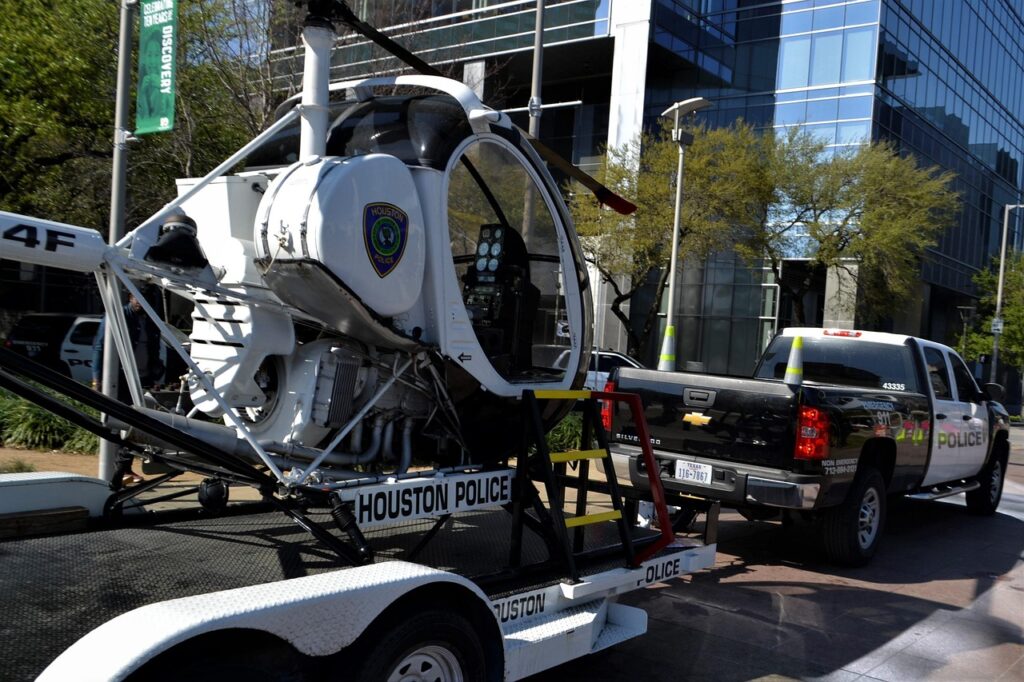
7. **Treating Their Work Zone Like Your Personal Lounge or DIY Project**So, the tow truck has arrived, lights flashing like a disco on wheels, and the driver is already assessing the situation. Your immediate instinct might be to hover, peer over their shoulder like a hawk eyeing its prey, or even try to “help” by fiddling with your car. Hold up, friend, stop right there! While your intentions might be pure as gold, turning their workspace into a crowded living room or an unsolicited DIY project is a surefire way to add stress, confusion, and even danger to an already delicate operation.
Tow truck drivers are laser-focused on a complex task, often in close proximity to fast-moving traffic and unpredictable hazardous conditions. They’re meticulously following “Proper Loading and Unloading Procedures,” ensuring all “straps, chains, and towing equipment are correctly fastened before driving off.” Your presence too close to the action, or attempting to assist without being explicitly asked, can be a major distraction and a significant safety risk, especially when heavy machinery is humming and gears are grinding.
Think of it this way: their work zone is less like a casual pit stop and more like a surgeon’s operating room, except it’s on the side of a busy highway, probably with wind and rain. They need ample space, clear sightlines, and uninterrupted concentration to perform their duties safely. They are “trained to stay alert and respond swiftly” to the unpredictable environment, and any interference can disrupt their critical focus. If they truly need your help or information, they will absolutely ask you, trust us! Otherwise, the best, most helpful thing you can do is maintain a respectful distance and let them work their magic.
Your role around an active tow scene is crucial, not as an eager assistant, but as someone who is intensely mindful of everyone’s safety, including your own. Respecting their space and allowing them to concentrate fully on securing your vehicle is one of the most proactive and beneficial actions you can take. It dramatically reduces the risk of accidents and allows them to get your car safely loaded and on its way to repair much faster, turning a potential headache into a smooth sailing experience.
8. **Expecting a Full-Service Mechanic’s Bay on Wheels**We absolutely get it, you’re stressed out, maybe a little frantic, and your car is, well, *not* car-ing in the slightest. When the tow truck finally pulls up, it’s totally natural to wish they could just perform a full engine overhaul right there on the shoulder, transforming your wreck back into a pristine ride. But here’s a quick reality check for everyone: while roadside assistance offers “on-the-spot help for vehicle issues” like “flat tire changes, battery jump-starts, lockout assistance, emergency fuel delivery, and minor mechanical fixes,” it’s definitely not a mobile repair shop equipped for extensive diagnostics or heavy-duty repairs.
Tow truck drivers are bona fide experts at vehicle recovery and getting your incapacitated vehicle to a safe location. They are equipped to handle the most common and urgent emergency scenarios, not to diagnose complex engine problems, replace major components, or perform the kind of deep dive a garage mechanic would. Expecting them to do more than what’s clearly within their defined service scope can lead to a truckload of frustration for everyone involved, especially if you then blame them for not being able to perform a complete, garage-level repair right then and there.
Understanding the precise limits of their service is absolutely key to managing your expectations and avoiding unnecessary disappointment. They’re primarily there to “get you back on the road safely” if it’s a quick fix, or, if that’s not possible, to transport your vehicle to a qualified facility that *can* handle the bigger, more intricate fixes. They operate under a strict mandate prioritizing safety and efficiency, meaning they’ll do what they can quickly and effectively to extricate you from a dangerous roadside situation and move your vehicle.
So, while they might have a clever trick or two up their sleeve for a super quick fix, always remember their core mission. Appreciate their incredible ability to tackle immediate emergencies and safely move your broken-down vehicle. Asking them to spend hours trying to fix a deep-seated mechanical issue when they have other calls waiting and potentially other stranded drivers to assist just isn’t fair, nor is it what their specialized service is genuinely designed for.
9. **Ignoring Their Safety Instructions or Directions Like They’re Just Suggestions**When a tow truck driver gives you an instruction on the side of the road, whether it’s telling you to move, wait, or retrieve something, it’s not just a friendly suggestion—it’s a non-negotiable safety directive! These dedicated professionals are routinely working in inherently dangerous environments, often alongside roaring traffic on busy highways or in challenging, unpredictable weather conditions. Their “Awareness of Road Hazards and Surroundings” is not just a job skill; it’s a lifeline, and they’re meticulously trained to mitigate risks, which absolutely includes telling you where to stand, what to do, or what emphatically not to do.
Disregarding their expert guidance, whether it’s ignoring their plea to move further away from active traffic, refusing to stay in your vehicle until they explicitly tell you it’s safe to exit, or procrastinating on retrieving specific items from your car, recklessly puts everyone at risk. Remember, “Your role around an active tow scene is crucial,” and that absolutely includes listening intently and complying immediately with their requests. They’re acting as your temporary safety guardian, looking out for you, for themselves, and for every other road user who passes by.
The concept of “Good communication, whether through signals or a courteous gesture, ensures that all parties remain aware of each other’s intentions.” This isn’t a one-way street of the tow truck driver communicating outwards; it’s a vital two-way exchange. When a tow truck driver communicates a safety instruction, it’s absolutely vital for you, the stranded driver, to acknowledge it clearly and follow it without hesitation. They have a comprehensive overview of the roadside environment, from the flow of oncoming traffic to the intricate mechanics of their equipment, and their instructions are always issued with collective safety as the paramount concern.
So, next time they ask you to move behind the guardrail, or point out where your spare tire is hidden, or even just tell you to sit tight, understand that they’re not just making casual conversation or being bossy. They’re implementing a critical safety protocol designed to protect lives. Following their directions promptly and without argument makes the entire rescue process smoother, significantly faster, and, most importantly, infinitely safer for everyone involved in the roadside rescue. Your cooperation is literally a life-saver.
10. **Forgetting Basic Courtesy and Respect for the Human Behind the Wheel**Let’s face it: breaking down is a huge bummer, a definite mood-killer, and can turn your day upside down faster than you can say “flat tire.” But let’s take a moment to remember that the person showing up to help you is a real human being, not a roadside assistance robot that just materialized from the asphalt. They’re often working grueling long hours, sometimes in truly terrible weather conditions or late into the night, all just to get you out of a sticky situation. One thing tow truck drivers *really*, truly wish you’d stop doing is treating them like an emotionless service drone, forgetting basic courtesy and the human respect everyone deserves.
These dedicated technicians often perform “physically demanding tasks in dangerous conditions, like alongside busy highways, in extreme weather, or late at night when visibility is poor.” A simple “hello,” a heartfelt “please,” and a sincere “thank you” can go an incredibly long way in brightening their day and acknowledging their tough work. They’re there to assist you with their expertise, but that absolutely doesn’t mean they’re immune to rude comments, unbridled impatience, or being treated as if they’re invisible or an inconvenience.
The idea of “Respecting Other Road Users and Their Space” isn’t solely for them to practice towards you; it’s a fundamental two-way street of mutual consideration. This level of professionalism and dedication from the tow truck operator should always be met with an equal level of civility and understanding from those receiving the service. A positive, appreciative attitude from you, even amidst your own stress, can genuinely make their already challenging job a little bit easier, and certainly a whole lot more pleasant.
Think about it: they are literally your hero in a high-stress, inconvenient situation. A little politeness, a genuine smile, a nod of acknowledgment, or even just appreciative eye contact shows you recognize their effort, value their assistance, and see them as a fellow human. Remember, as the context highlights, “many roadside professionals say respect and courtesy matter just as much as money.” So let’s make sure we treat these invaluable helpers with the profound respect and kindness they undoubtedly deserve!
Read more about: The Great Blinker Blackout: Are You Contributing to the 750 Billion Signal Failures Annually?
11. **Skipping the “Thank You” (Whether It’s a Tip or a Shout-Out!)**Alright, fantastic news! Your car is safely loaded, your pesky flat tire is expertly changed, or your dead battery has been powerfully jump-started—you’re officially back in business and ready to roll! The tow truck driver has completed their mission with precision and professionalism, and is now ready to head off to their next call. This exact moment is the prime opportunity to show your appreciation, and tow truck drivers *really*, truly wish you wouldn’t just pack up and skip it. While the context clearly states, “Tipping roadside assistance workers is not mandatory or universally expected,” a thoughtful gesture is almost always appreciated, and there are tons of awesome ways to say thanks.
Ever wonder “Why Should You Tip?” The context unpacks it: it’s a “simple way to recognize prompt, courteous, and professional service,” especially for “physically demanding tasks in dangerous conditions.” For basic services like a jump-start, “$5 is often a reasonable way to say thanks.” For complex issues like a tire change, or challenging circumstances, “a $10-20 tip” might be more appropriate. Even with membership programs where “annual fees cover all services,” offering a tip or acknowledging their effort is profoundly valued as a sign of gratitude.
But what if you don’t have any cash on hand, or if “some providers don’t allow technicians to accept tips” due to company policy? No sweat, we’ve got you covered! The context offers a treasure trove of awesome “Alternatives to Tipping” that are just as impactful. You can “Leave a positive review and detailed feedback on the provider’s website, Google profile, or social media,” making sure to “Mention the technician by name and describe what impressed you.” This isn’t just a feel-good gesture; it directly helps them “build professional reputations and advance careers.” Imagine giving your hero a professional boost!
Even better, you could “Refer the service to fellow RVers or friends” who might need assistance, or “Contact the service company directly to commend exceptional technicians.” The context explicitly mentions that “Positive feedback often factors into employee evaluations, bonuses, and recognition programs,” highlighting the significant, long-term value of your words. So, whether it’s a crisp fiver slid into their hand or a glowing online review that spotlights their superhero efforts, making the genuine effort to acknowledge their hard work is a fantastic way to ensure these roadside heroes feel truly valued. It’s the ultimate mic drop on a stressful situation, leaving everyone feeling good.
And there you have it, folks! Eleven crucial insights from the amazing folks who come to your rescue when your trusty ride decides to call it quits. By understanding these “do-nots,” you’re not just making their demanding job easier; you’re actively contributing to making the side of the road a safer, more respectful, and less stressful place for everyone. So next time you’re facing a roadside hiccup, remember these tips, be prepared, be polite, and let our tow truck heroes do what they do best—getting you back on track, safely and efficiently. Happy driving, and may your journeys be wonderfully breakdown-free!

